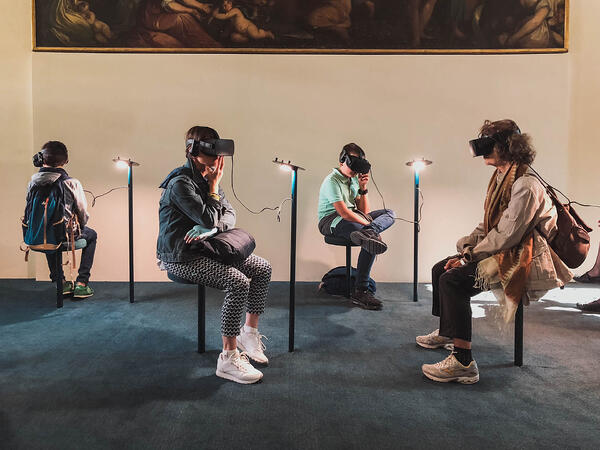
It’s fascinating how mobile phones have become a necessity nowadays. Have you ever taken the time to think about how dependent you have become on your device? How often do you reach for it? What do you do with it? You know the answer, and it is likely to be “frequently” and “everything.”
That is precisely the motivation behind the utilization of mobile in market research. With the convenience of mobile for both researchers and participants, it is only sensible to use it as an efficient means of data collection for qualitative projects. As its popularity grows, more and more methods are being designed and developed, resulting in various mobile market research trends.
Latest Mobile Marketing Trends
Artificial Intelligence
The extent of potential AI applications in mobile research is endless. Targeted advertising, recommendation engines, as well as the ability to gather, process, and automate datasets are only a few of the promising possibilities AI can offer to accelerate market research in general.
This trend of automation and technology grows more vital as 2022 continues, with a forecasted market growth of USD 387.45 billion in 2022 to USD 1,394.30 billion by 2029. While not a complete replacement for human capital, AI is an ideal supplementary tool to reach customers, democratize insights, and scale your business.
Transition to M-commerce
Commerce has gone through many stages over the past few years. It has advanced from physical stores to online websites and, lastly, to mobile devices. As a result, market researchers are looking to adapt business offerings for the M-commerce market.
Today’s mobile research tools are inherently designed to capture not only passive information but also track browsing and buying habits. Market research groups have mastered harnessing big data to access consumers’ full range of mobile activity for client use. In m-commerce or mobile commerce, buying behavior is collected and studied to improve mobile marketing efforts.
Mobile-First Surveys
The need for agile results led researchers to rely on cost-effective digital methods when administering surveys. With nearly 90% of market researchers regularly using online surveys, mobile surveys are expected to have the same impact in the future.
This mobile market research trend caters to tech-savvy generations, such as Millenials and Gen Z, with shorter and more intelligent questionnaires that narrow down your scope to the most crucial data points. Then again, while mobile does provide a broader reach and an increased response rate, researchers must still optimize user experience to account for a limited screen display and survey length. Experts suggest that doing so can result in a 10% increase from the 60% of researchers that use mobile surveys.
User-Generated Content
With Google removing third-party cookies from Chrome and Apple’s anti-tracking feature for apps, companies are now looking for new and less invasive ways of collecting online user data. This puts the focus on gathering information from customers that have actively opted into the study – paving the way for user-generated content as a viable data source.
Because consumers voluntarily create and share their content (e.g., videos, photos, text, audio) on tools, such as mobile applications, this removes any data privacy concerns from the table.

Virtual Reality (VR)
Originally in gaming, now in market research as well. Virtual Reality is used in market research as a unique and innovative testing tool that allows participants to try out products without spending big bucks on producing physical prototypes. Capgemini reports show that 75% of brands implementing large-scale VR/AR solutions can attest to a 10% increase in operational benefits.
For shopper insights, virtual reality allows participants to virtually walk in stores as if they’re physically there and give feedback on their shopping experiences without encountering any in-store hassle.
Mobile Ethnography
The emergence of mobile ethnography saves researchers a substantial amount of time and resources from traveling across states and countries. However, mobile market research is more than uploading an image.
Mobile makes it possible for researchers to virtually observe and gather data in real-time while participants record their daily activities on a smartphone or tablet. This method applies to medical research, too, as doctors and researchers can observe a patient’s journey without the intrusion of an in-location video team.
Gather Real-Time Insights With Civicom® Mobile Research
With the right tools and intuitive features, mobile can be optimized to its full capabilities. Thus, driving your study to success. If you’re looking for a way to get a close look at your participants’ natural settings, routines, and key decision moments while eliminating expensive travels and in-home intrusions, Civicom’s Mobile Research solutions are ideal options for various applications.


